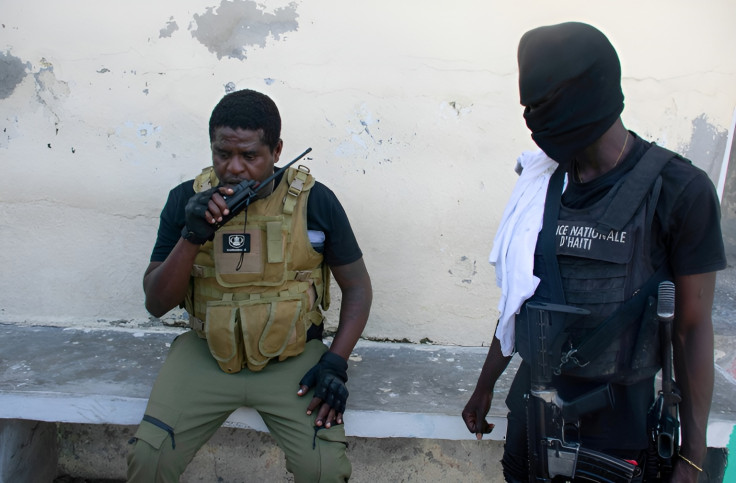
Haiti's most notorious gang leader, Jimmy "Barbecue" Chérizier, spoke against the arrival of an international force tasked with quelling violence in the Caribbean country, saying the consortium of criminal organization he leads is gearing up for a lengthy fight that will involve "a lot of bloodshed."
Speaking to NPR in the violence-ridden country, he added that he expects the forces will eventually get tired and leave.
Chérizier gave the interview amid a renewed wave of violence in Haiti, which has led more civilians and police officers to demand the dismissal and arrest of the country's police chief Frantz Elbé, The Associated Press reported.
The attacks, which have forced thousands of additional people from their homes, also takes place as the international force seems to be getting closer to deployment after months of delays.
U.S. military planes began landing in Haiti last week, with civilian contractors aiming at securing the airport before building a base of operations and supplies for the force. Led by Kenya, the force is also set to have members from six other countries: the Bahamas, Bangladesh, Barbados, Benin, Chad and Jamaica.
In the meantime, the country's recently-appointed transitional council attempts to solidify its position after a chaotic start that saw them backtrack on a prime minister announcement. Police authorities want the transitional council to demand the resignation of the police chief, as they "continue to lose their premises and equipment and officers," according to a Haitian police union.
In another passage of the interview, Chérizier said the continued violence is responsibility of the government and the country's elites, who created the gangs to "do the dirty works for them."
Challenged by noting that poor people are being extorted and women are getting raped, Chérizier said that while that is true, "all of the extortion and all of the mistreatment is because the government allowed those things to happen."
He also blamed the U.S., saying the government carries some "responsibility" for the country's situation because they don't let Haitians decide about their own future for themselves. "The transitional council is not the will of the Haitian people. This is what Washington wants," he added.
Over 360,000 people have had to leave their homes and millions are unable to conduct their daily lives amid daily violence on the streets. Gangs are estimated to control about 80% of the capital, Port-au-Prince. The latest bout of violence took place in the Gressier neighborhood, where gangs seized another police station during the weekend.
"The town is ours," said one man who filmed himself, according to social media posts viewed by AP. "We have no limits."
© 2025 Latin Times. All rights reserved. Do not reproduce without permission.




